Becoming Myself is a psychiatrist’s memoir written when the author is well into his 80’s. It is packed with stories from his childhood, his struggles with being Jewish, his college and medical residency years, his marriage, travels, the experience of losing his parents, memorable encounters with patients and some very renowned personalities who were his seniors!
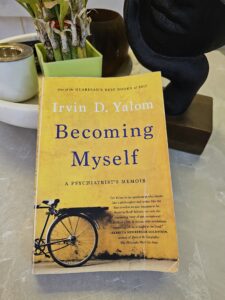
The first thing that struck me is how amazing a life in academia can be – but I suppose you have to be abroad for that – the kind of investment Stanford makes in him is just amazing, simply so he can write, research & publish while practicing. I highly doubt if someone of Dr. Irvin Yalom’s intellectual capabilities would blossom into what he eventually becomes if they were born in my country – and I do say that regretfully. I don’t think we value our intellectuals or research enough – just take a look at our R&D budget allocations to get an idea. Anyway, let’s get back to the book.
First, about the author. Dr. Irvin D. Yalom is an American existential psychiatrist i.e. to say he spent a great deal of time with patients who are terminally ill and facing imminent death. He is also an emeritus professor of psychiatry at Stanford University, as well as author of both fiction and non-fiction. Born on June 13, 1931, he is currently in Berlin living with his second wife Sakino Sternberg who he married recently in 2024.
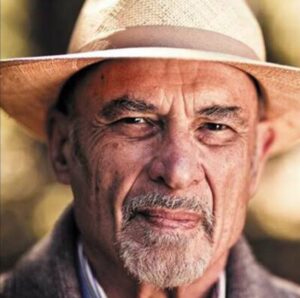
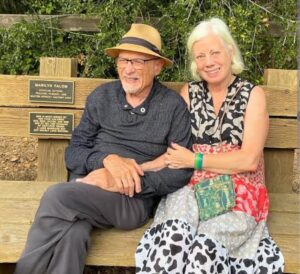
(Seen here with second wife Sakino Sternberg)
His first wife Marilyn Yalom features throughout this book and she passed in November 2019.
THE EARLY YEARS
“Looking back now, I feel tenderness for that lonely, frightened, determined young boy, and awe that he somehow made his way through his self- education, albeit haphazardly, without encouragement, models or guidance.”
The authors childhood was largely comfortable and he was well provided for. However, he does dwell on the emotional void that he battles with while growing up – feeling under appreciated, and unloved particularly by his mother. It is yet another example of how our childhood memories leave a lasting impact on our psyche and often frame our world view. For those of us who have experienced therapy, it always starts there – ‘tell me about your childhood’.
There is a wonderful experiment in this book where Yalom scripts a fictional conversation where he is offering therapy to his younger self! This is a must-read to see how he unpacks his own childhood thoughts and potentially also biases with a lot of empathy and care. I think this is something all of us can try – you don’t have to be a professional psychiatrist to do it! I’m certain that all of us are great at giving advice, but not quite so good at applying that in our own lives.
For his medical college aspirations, Yalom recalls how he applied to 19 colleges and was rejected by 18 – the only acceptance coming from the one college that happens to somewhat be affiliated to his previous institution. And of course he accepts it. He talks about the possibility of these rejections being somewhat motivated by the fact that he is Jewish.
“Looking back now, I believe my lack of outrage was due to my lack of self-esteem..”
MARRIAGE AND ADULTHOOD
Yalom deeply loved and respected his first wife and this is evident throughout the book. They shared a blissful life together over many decades, and had four children (and eight grandkids). I also think that Yalom’s love for philosophy was perhaps somewhat an influence of his wife and it goes on to play a significant role in all his writing and practice throughout his adult life. The effort that they put into their relationship teaches us a thing or two. We often get too caught up in life to share it properly with the person who matters the most.
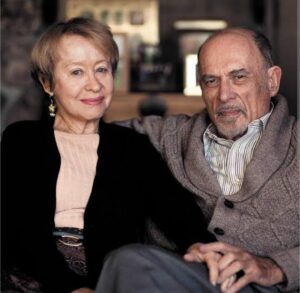
One particular incident of his years as a college student is striking – the first ever patient Yalom treats – and after which he has to give a presentation to peers and seniors of his examination and findings (his third year of medical school). In that moment, he decides to adopt a storytelling style as opposed to what all the rest are doing – a move that must have required some courage. But it pays off – not just because his seniors find nothing at all to correct (as they have done in almost all other cases), but because it is exactly after that presentation that Yalom comes to truly realize his own potential. It is somewhat the same in our lives, one pivoting point where, ‘you come into your own’, and that then forms the foundation of your future confidence. While these moments are only recognized in hindsight – see the two things that lead to it are – courage and authenticity.
PHILOSOPHY & PSCHYOTHERAPY
Yalom’s work in the field of group therapy is truly vast and he was highly regarded for this expertise.
“I explained that the group is a social microcosm, and that the issues raised in the therapy group would replicate or resemble the types of interpersonal issues that initially brought them into therapy.”
While I have never really experienced this format directly, a group coaching session had a great impact on me in August 2023. Amongst a group of 5 colleagues & peers, guided by a professional coach, we dealt with some difficult questions. How did we see ourselves – past, present and future, what held us back and how did we find our energy etc. These are not easy questions, but it was remarkable to see how vulnerable we can all become in the face of these questions of deeper meaning and how group dynamics plays such an important role in each individual discovering themselves. Definitely recommended but must be under the guidance of an excellent coach, we were fortunate to have one and I remain indebted to the coach and my company for this investment in us to this day.
As a student of psychiatry, Yalom argues that the assumption that psychiatry began with Philippe Pinel in the 18th century is flawed. “..I kept thinking of all the thinkers who had written on human behavior and human anguish long before – philosophers, for example..”
And thus, Yalom begins his study of philosophy devoting an entire year to study it while still being in medical college.
“I would apply this wisdom to my field of psychotherapy, but at some deep level, I knew I had found my life’s work”
WORK, LIFE AND THERAPY
Yalom and his wife travel the world while practicing their respective professions and that was a great deal of envy for me – what a fantastic life! And it is these travels where he discovers that there is indeed more to life than work.
“I was changing: work wasn’t everything.”
Japan, China, Bali, Paris, Greece, Hawaii, London, US – Yalom has the experience of living for short periods in these places, reading, researching and writing while also practicing / public speaking on many occasions.
And of course, I suppose all those that journey towards the ultimate meaning of life and think about existentialism, find their way to India! Yalom does the same and describes his experiences at the Vipassana Centre in Igatpuri sometime in 1983 where he spends 11 days under the guidance of S N Goenka, a Padma Bhushan awardee.
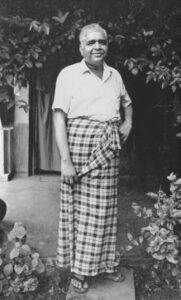
Yalom describes, “I’ve seen the emperor without clothes, heard the secrets of too many individuals in high places, and know there is no one immune to despair and longing for the lap of the divine.”
Among other experiences, Yalom describes the death of his parents at different points in time and how he felt a sudden grief for not doing enough to understand them and express his love and appreciation. It struck me that a professional psychotherapist trained at helping people process and deal with their feelings – also fell short when it came to his own life.
Yalom shares the times in life where he goes in for therapy himself – and the ease with which he describes seeking that help really puts focus on the taboo in our society on doing the same – when it should be as natural as going to the doctor when you are physically unwell. This really does need to change.
Therapy can be immensely helpful even if only to process your thoughts and feelings at difficult junctures in life and can greatly enhance the quality of your own understanding of yourself and improve your relationships.
While Yalom provides a therapist’s view of the need to be able to see the world through the patients eyes, this is sound advice for any human relationship. A very moving example is all that it takes for him to describe the essence of this advice.
” Throughout adolescence, one of my patients had been locked in a long, bitter struggle with her naysaying father.. she yearns for reconciliation. On a rare occasion they are both required to take a long drive to get to some place. She looks for an opportunity to strike a conversation but he father true to form spends most time complaining about a garbage littered creek on the side of the road. She gives up all attempt as she finds the creek to be perfectly fine. It is only many years later and long after her father’s death that she takes the drive by herself and realizes that the creek on the driver’s side is indeed littered and dirty. She was looking out on the other side all that time in the past..”
As Yalom ventures into the field of existential therapy formally, he starts to work with patients who are terminally ill and counting days..
“My work with the terminally ill led gradually to confronting healthy patients with their mortality in order to help them change the way they lived…I ask the patient to draw a line on a sheet of paper, and then I say, ‘Let one end represent your birth and the other end your death. Now please place a mark on the line to denote where you are now, and meditate on that diagram..”.
I would highly recommend this experiment.
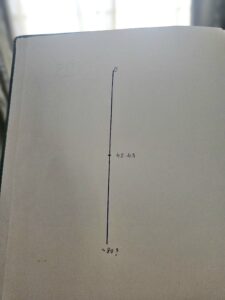
“A NOVICE AT GROWING OLD”
Yalom’s desire to continue learning and writing is evident throughout the book and he remains open minded as new methods and technologies emerge that impact his field. However he does stop at one point to keep up.
“The truth- slightly embarrassing to admit -is that I am no longer interested. When I start to feel guilty about this, I comfort myself by saying that I have put in my time..”
“Once I finish this work, I feel certain there are no more books waiting for me. My friends and colleagues groan when they hear me say this. They’ve heard it many times before. But I fear this time is different.”
This is a book worth reading in the process of your own self-discovery. It can lead you to empathize with yourself and some of the existential questions you might be encountering no matter where you are in life. Do take the time.

Ruta
